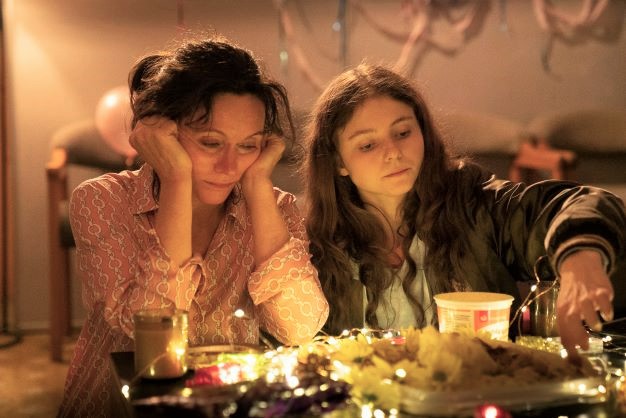It would be an understatement to say that the odds are stacked against Bunny King (Essie Davis), though you wouldn’t necessarily know it from her smile or energy. Whether weaving in and out of traffic cleaning car or driving down the road and belting along to the radio, she gives the impression that she is determined to live her life in open defiance of her circumstances. Yet the circumstances are undeniable.
Her children have been taken away from her because she killed her husband in response to his abusing her daughter. She’s recently been let out of jail, and she can’t be approved to regain custody of them without a home of her own, which she doesn’t have. She lives with her sister and brother-in-law, who seem hospitable enough until Bunny crosses them by observing something disturbing in their household. Her city—Auckland, New Zealand—is also in the midst of a housing crisis.
Nevertheless, she has a knack for showing up to see her children, whether at Government Family Services or at the home of a foster family, when she has been expressly forbidden from doing so. The film centers on her attempt to provide for herself and get her children back—more immediately, to give her daughter, Shannon (Amelie Baynes), a birthday party.
If there is one reason to see this, it is Davis. With the same energy and unapologetic ebullience she brought to her very different outsider in Justin Kurzel’s Nitram, she captures Bunny with ferocity and nuance. It’s a role that requires tremendous energy and an ability to convey massive changes in and mixes of emotion. Bunny perpetually hovers above abject despair, and is consequently prone to incredible bursts of anger, yet this anguish is offset by her ability to wrest humor and creativity from her abysmal situation. Davis makes her impulsivity, and her ability to laugh, utterly believable. One particular scene, in which she laughs while being carried away in an ambulance, stands out.
The rest of the movie is not as strong as Davis. Certainly, it is well paced, well acted overall, and serves as a fine portrait of both the endless bureaucracies that plague marginalized people and of a flawed yet loving woman. As is often the case with films that focus deeply on one character, some of the others are not as well realized. Tonyah (Thomasin McKenzie), Bunny’s niece, feels like she could have been given more screen time, considering what she’s been through (sexual abuse) and that she comes to play an instrumental role. Others, such as a social worker who finds herself in a dire position with Bunny, come across as surprisingly chill given the circumstances. While there are flaws, and the story itself might not be especially original, this is nevertheless a strong debut from director Gaysorn Thavat.







Leave A Comment